Academician Feng Shao from the Beijing Institute of Life Sciences visited IBP and gave the Bei Shizhang Lecture
On April 20, 2021, Academician Feng Shao, a senior researcher of the Beijing Institute of Life Sciences, was invited by IBP to deliver a Bei Shizhang Lecture entitled Pyroptosis, inflammation & antitumor immunity. More than 100 researchers and students, including Prof. Bing Zhu, Deputy Director listened to the report. The meeting was held by Prof. Xiaochen Wang, a Principal Investigator from the State Key Laboratory of Biomacromolecules of IBP.
Prof. Shao has long been engaged in the study of the molecular mechanism of pathogenic bacteria infecting the host and the host's innate immune defense, and has achieved a series of important original results in the fields of pathogenic bacteria's virulence mechanism, anti-bacterial innate immunity and pyroptosis. Prof. Shao has published more than 100 academic papers, and published 17 research papers in Nature, Science and Cell as the corresponding author, with a total of nearly 20,000 citations. He has won many important awards, including the Future Science Prize, the Qiushi Outstanding Scientist Award, HHMI International Early Career Award, Protein Society Irving Sigal Young Investigator Award, Tan Jiazhen Life Science Award, Wu Jieping-Paul Janssen Medical & Pharmaceutical Award, and He Liang and He Li Prize for Science and Technology Advancement. He was elected as a Member of the Chinese Academy of Sciences and an Associate Member of the EMBO in 2015., He was elected as a Fellow of the American Academy of Microbiology in 2016 and as a Fellow of the German National Academy of Sciences Leopoldina in 2019.
In the report, Prof. Shao started the theme of his lecture cell pyroptosis, inflammation and tumor immunity by sharing the important role of biochemical thinking in exploring biological problems, and the discovery and progress of cell pyroptosis in details.He first introduced Gasdermin D, a key protein in the pyroptosis pathway identified by the team through genome-wide screening. Studies have found that activated Caspase-1/4/5/11 can cleave Gasdermin D, unmask the N-terminal domain with pore-forming activity, form pores on the membrane to change the permeability of the cell membrane, and induce pyroptosis. Then, he explained that caspase3 can activate Gasdermin E (GSDME), leading to the occurrence of cell pyroptosis and most tumor cells evade cell death by silencing GSDME, which is the first to associate Gasdermin protein with tumors. Then, he introduced that in the process of cytotoxic lymphocytes killing target cells, granzyme A derived from cytotoxic lymphocytes can specifically and efficiently activate Gasdermin B (GSDMB) protein, leading to pyroptosis of target cells. This molecular mechanism can promote the body's immune response against tumors.
Prof. Shao's report is vivid, easy to understand, and rich in content. The researchers and students asked questions with great interest. Prof. Shao answered the questions patiently and meticulously. Prof. Shao not only showed the latest scientific research progress, but also shared valuable scientific thinking and his own research experience.
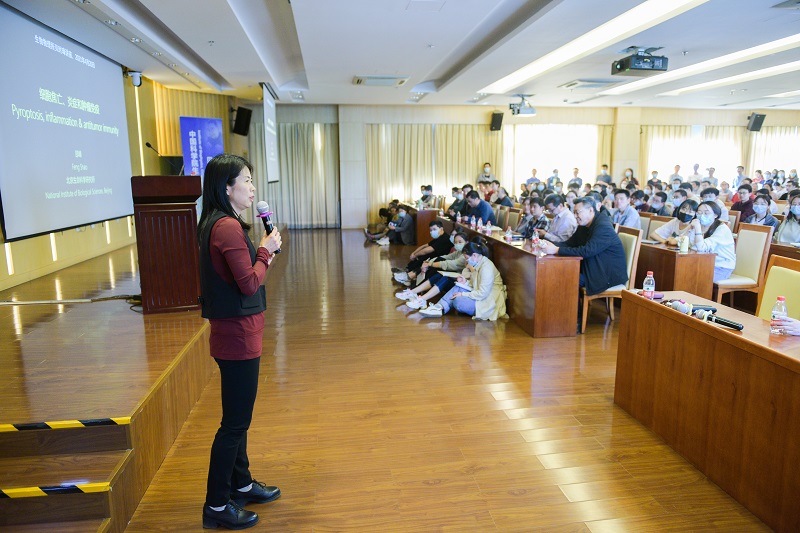
Prof. Xiaochen Wang hosted the lecture
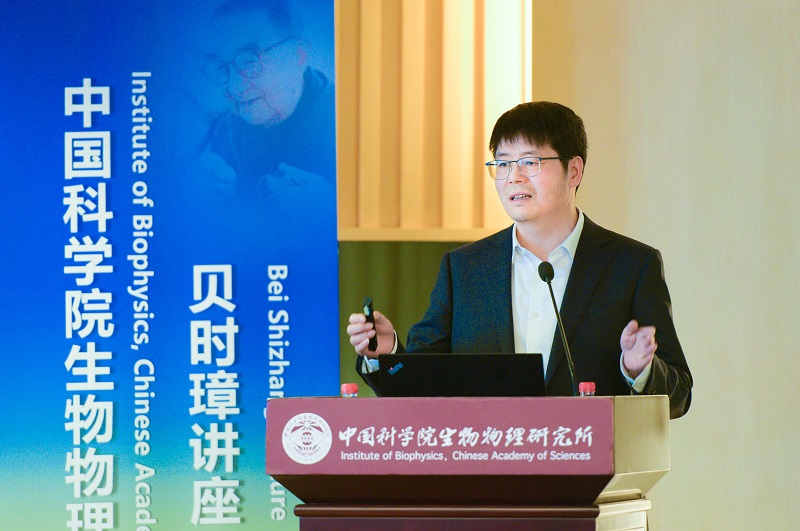
Academician Feng Shao was giving the lecture
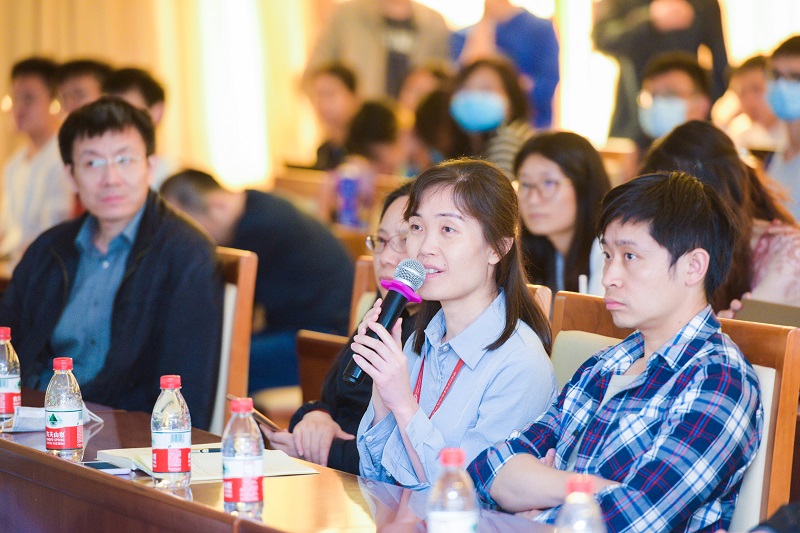
Researchers exchanged ideas with Prof. Feng Shao
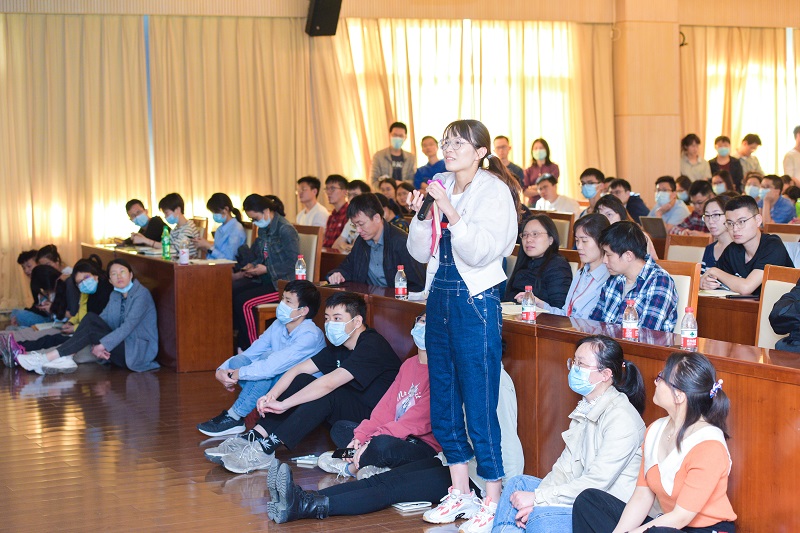
Students exchanged ideas with Prof. Feng Shao
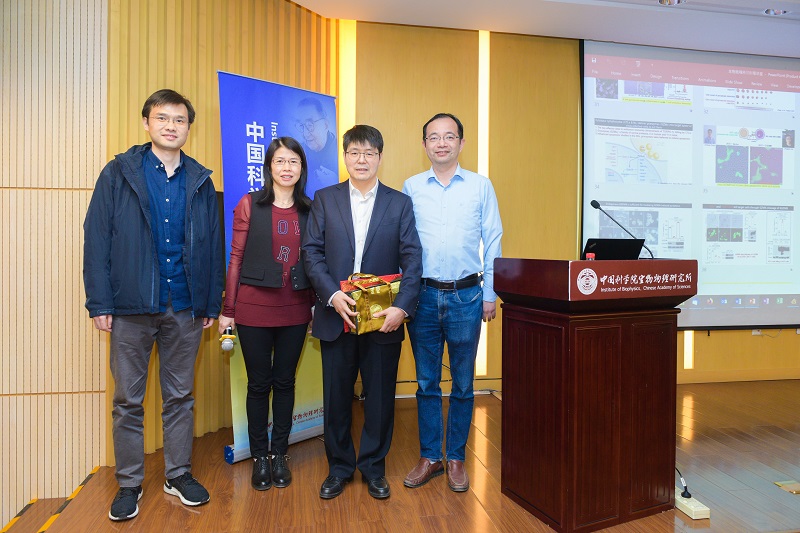
Researchers and Academician Feng Shao
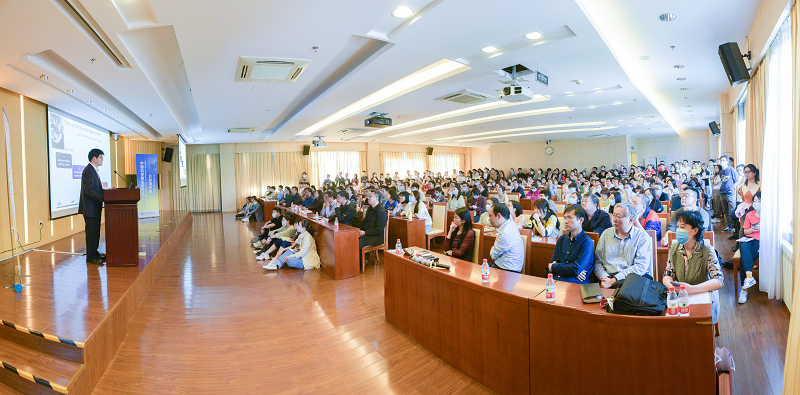
The audience

